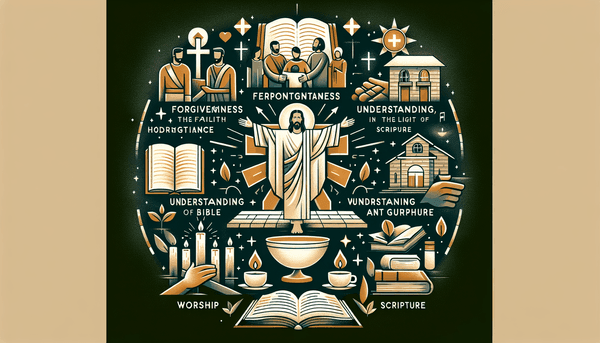The Promise of God's Spirit
In the book of Ezekiel, a profound promise is given where God says, 'And I will put my Spirit within you, and cause you to walk in my statutes and be careful to obey my rules.' (Ezekiel 36:27). This pledge is not merely a future blessing but a transformative gift enabling the Israelites to live in accordance with divine law—a theme that resonates throughout the Old Testament. Jeremiah echoes this covenantal assurance, stating that the law will be written on their hearts (Jeremiah 31:33), while Joel prophesies a time when God's Spirit will be poured out on all flesh (Joel 2:28-29). The promise finds its New Testament fulfillment at Pentecost, as recounted in Acts 2:17-18, where believers receive the Holy Spirit. This continuity reveals the Spirit's vital role in enabling God's people to embody His teachings, an empowering truth that continues to inspire believers today.
Moses: From Egyptian Prince to Prophet
Moses' story is one of the most compelling narratives in the Bible, marked by a dramatic shift from royalty to leadership under God. Born a Hebrew yet raised as an Egyptian prince (Exodus 2:10), Moses' life changed course when he encountered God in a burning bush (Exodus 3:2-6). Despite initial reluctance and a sense of inadequacy (Exodus 4:10-12), Moses accepted God's call to lead the Israelites out of slavery. This encounter marked the beginning of a journey that would transform him into the mediator of God's Law and the leader of a nation. Moses' story is further elaborated in Acts 7:22, which describes his education and capabilities, and Hebrews 11:24-26, which speaks of his faith and rejection of Egyptian treasures for the sake of his people.
Moses' Leadership and Obedience to God's Message
As the recipient of the Ten Commandments (Deuteronomy 5:22), Moses' fidelity to God's message was paramount. He served not only as a lawgiver but also as a teacher and guide for the Israelites throughout their wilderness journey. Moses' leadership was marked by challenges, yet his humility (Numbers 12:3) and close relationship with God enabled him to persevere and intercede for his people. Psalm 103:7 reveals that God made His ways known to Moses, a testament to their unique bond. Hebrews 3:5 further affirms Moses as a faithful servant in God's house, highlighting his obedient response to the divine calling and the enduring impact of his ministry.
Conclusion
From the promise of God's indwelling Spirit to the enduring quest for His kingdom, the biblical narratives offer timeless truths that speak to the heart of the believer's journey. Moses' transformation from an Egyptian prince to a humble servant of God illustrates the profound effect of answering God's call with obedience and faith. As we reflect on these stories, we are encouraged to consider our own response to the divine invitations extended to us. May we, like Moses, walk in faithfulness and anticipate the kingdom of God with hope and perseverance.






